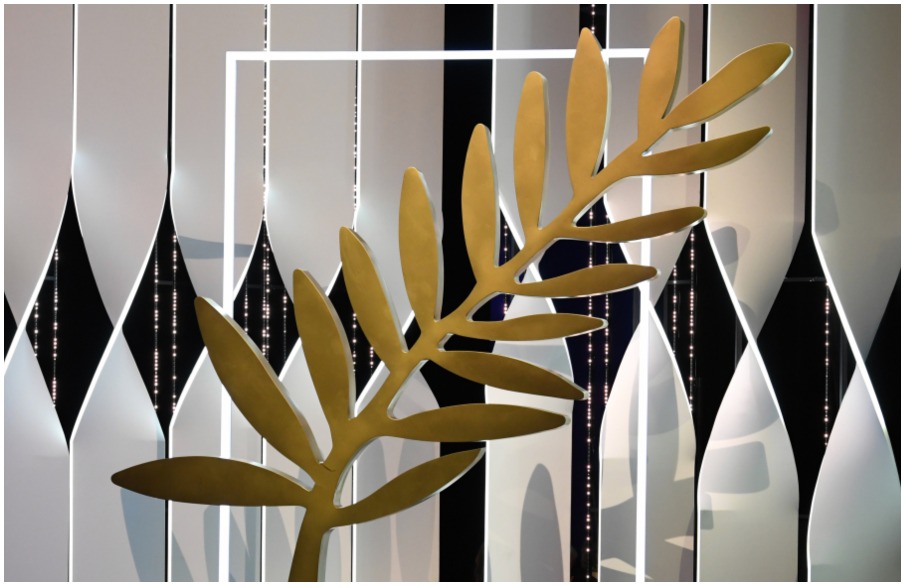“Sound of Falling”, the poetic and haunting second feature film by German director Mascha Schilinski, premiered in Competition at the 78th Festival de Cannes to powerful acclaim. Variety has already declared the film “an instant Cannes sensation,” and for good reason: this deeply affecting film dives into generational trauma, memory, and female experience with a rare blend of sensitivity and cinematic innovation.
A Female-Centered Story Rooted in Memory and Landscape
Co-written with Luise Peter, Sound of Falling explores how trauma echoes across four generations of women living in the Altmark region of northern Germany. Schilinski and Peter began their creative journey after encountering an old photograph of three women from the 1920s. “They were looking straight into our eyes,” Schilinski recalls. “We felt their melancholy, and wondered who they were. That was the beginning of everything.”
The film abandons a traditional linear narrative in favor of a stream-of-consciousness structure, where different eras flow into one another like overlapping memories. The title, Sound of Falling, refers to the emotional descent of characters through time, through trauma, through silence. “It’s not the noise that matters, but the quiet descent,” Schilinski explained.
Generational Trauma Beyond War
While films about generational trauma often focus on war or political upheaval, Schilinski’s lens zooms in on smaller, often unspoken devastations: a mother’s silence, an adolescent’s shame, a family’s repression. “We weren’t focused on big historical events,” she said. “Sometimes, it’s the subtle things—forgotten sorrow, silent grief—that shape entire lives.”
The film portrays these reverberations with poetic realism, showing how pain, even if unspoken, is carried in the body and passed on. As one character states, “You don’t always know where your trauma comes from. But you feel it.”
A Powerful Ensemble Cast Anchored by Female Performances
Leading the cast is Susanna Wuest, known for her roles in Goodnight Mommy and Antares. She plays Emma, a woman caught between memory and present-day motherhood. Rising star Hannah Hecht debuts as Alma, delivering a striking performance in Plattdeutsch, a rare northern German dialect she learned specifically for the role. Lena Ozendowski, a German Screen Award winner, embodies Angelica with a delicate intensity.
The film’s ensemble structure, with characters portrayed across generations, presented a unique challenge: How do actors connect with their counterparts across time? “Sometimes, not knowing is part of the truth,” Wuest explained. “Emma can’t know what Alma or Angelica experienced. That’s the mystery of trauma.”
Visual Language of Memory and Loss
The cinematography by Fabian Gampau, winner of the German Camera Award, plays a crucial role in the film’s immersive effect. Gampau and Schilinski used “peepholes, cracks, reflections,” and blurred visual motifs to suggest memory as both fragmented and deeply embedded.
“We didn’t use different styles for each era,” Gampau explained. “Instead, we focused on how memory works—how something fades but still leaves a mark.” The visual approach reinforces the emotional continuity between generations, despite the physical and historical distances.
A Radical Use of Sound
Sound design in Sound of Falling functions almost like a ghost: subtle, unsettling, always present. “We didn’t want the sound to follow the image,” said Schilinski. “Sometimes, the sound precedes what’s happening. It suggests something’s wrong, something’s coming, even before it appears on screen.”
The music, limited and deliberate, includes Strangers by Anna von Hausswolff, used sparingly but powerfully to bridge generations. “The film could work without music,” Schilinski noted, “but this one piece had to stay. It carries the soul of the film.”
Feminine Perspective at the Core
At its heart, Sound of Falling (Die Sonne schauen) is a meditation on generational trauma and a deeply feminine film—crafted, structured, and told through a resolutely female gaze. This perspective is not incidental but foundational to director Mascha Schilinski’s vision.
“I never wanted to tell a story about women,” Schilinski said during the Cannes press conference. “I wanted to tell a story with them, from them, and through them.”
Schilinski spoke movingly about the historical silence surrounding women’s inner lives. “In our research, we found a woman’s journal from the early 20th century,” she recalled. “One line stopped us cold. She wrote: ‘Ich lebe mein Leben für nichts.’ (‘I live my life for nothing.’) That sentence haunted me. It was so quiet, but so devastating.”
She paused, then added: “That woman didn’t write any more. That was it. A single line. I felt I had to make a film for her—for all the women who never got to finish their stories.”
In many ways, Sound of Falling gives language to what has long been unspoken. It doesn’t just explore how trauma is inherited—it asks why it is so often women who are expected to carry that weight quietly.
“Women carry things,” Schilinski said simply. “They carry their mothers. They carry their daughters. And often, they carry silence. This film tries to break that silence—not with noise, but with presence.”
A Landmark in German Independent Cinema
Produced by Maren Schmidt and Lukas Schmidt, the film was challenging to finance and shoot, especially given its ambitious narrative scope and minimal budget. Yet, the result is a cinematic gem. “When you believe in a vision,” said the producers, “you find a way to make it happen.”
With Sound of Falling, Mascha Schilinski establishes herself as one of the most compelling voices in contemporary European cinema. Her radical approach to storytelling, fearless exploration of trauma, and commitment to authentic female experience mark this as one of the most important German films in years.









































